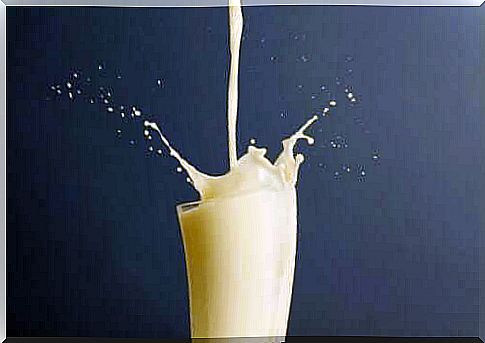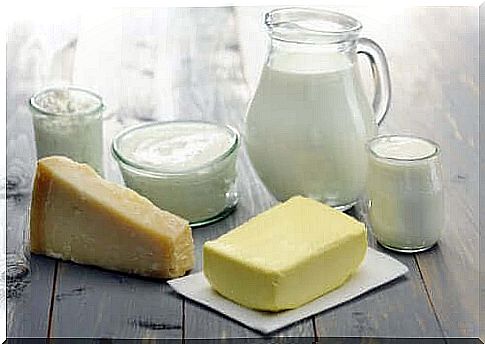Whole Milk Vs Skim Milk: Which One Is Better?

Want to know what the new studies say about the health benefits of whole milk versus skim? Then keep reading!
One of the first steps most people take at the start of a diet when trying to lose weight is to swap out whole milk for skim milk. The logic behind it is that a lower intake of calories from fat will lead to weight loss.
On the other hand, some choose to drink skim milk simply because they like the taste. They think that whole milk is too strong and too heavy.
Whatever the reason, it is important to analyze the foods that are part of your daily diet. It is important to determine whether skim milk is your best alternative.
Skimmed milk vs whole milk
The main difference between the two types of milk is that skim milk, as the name implies, contains less fat. It therefore contains fewer calories.
However, when you eliminate milk fat from your diet, you also eliminate fat-soluble vitamins A, D and E. In any case , almost all types of milk today are fortified and fortified with all kinds of vitamins and minerals. However, which version is the most nutritious?
Which is more nutritious: whole milk or skim milk?

The fat-shedding process can also reduce vitamins and calcium, lowering the nutritional value of milk. As we mentioned above, the main difference is in the percentage of fat in the milk itself and this affects both calories and taste.
Not only that, when losing fat, skim milk also loses fat-soluble vitamins that are characteristic of milk. This includes vitamin A and vitamin D, also known as calciferol. In addition, a small amount of vitamin E is lost naturally during the processing process.
According to Professor Sergio Casalmiglia, professor at the University of Barcelona, taking part of these vitamins also makes people lose part of the absorption capacity of calcium. This is because our digestive system absorbs calcium better along with fat.
Currently, the processed skim milk is not too different in terms of fat-soluble vitamins and the amount of calcium it contains, as vitamins A, D and E have been added. Whether they can be absorbed well, however, is another matter.
These vitamins are not necessarily synthetic, but neither do they come from the extracted fat. That is why both types of milk today are equal in terms of vitamin and mineral content, but skim milk contains fewer calories.
What do studies say?
A 2017 study published in The American Journal of Nutrition claims that the intake of whole cheese and yogurt does not lead to weight gain. On the contrary, it could even help prevent it. The same goes for diabetes. These are benefits that, according to the study, consumers cannot get from low-fat products.
Another study concluded that drinking whole milk could help prevent diabetes. During this study, they analyzed 3,000 human blood samples over 15 years. They found that people who consumed whole milk were 46% less likely to get this disease.
In addition, a Harvard University researcher, Mohammad Yakoob, found no association between whole milk intake and obesity or diabetes in a meta-analysis of US medical records. On the contrary, his research suggests that whole milk consumers are in fact better protected.
Studies in children

Studies do not associate skim milk with lower weight in children. A study published in 2016 analyzed the diets of 2,700 children between the ages of 2 and 6. The results showed that children who drink whole milk have a lower body mass.
dr. Dariush Mozaffarian says: “I think these results indicate that we need a change in policy that recommends low-fat dairy products. There is some evidence that those who consume whole milk in their diet are in better shape than those who adhere to a low-fat milk diet. ”
In general, we hope you have gained some knowledge about the nutritional value of skimmed and whole milk. For now, it seems that the aforementioned studies have indeed enlightened us a bit.









